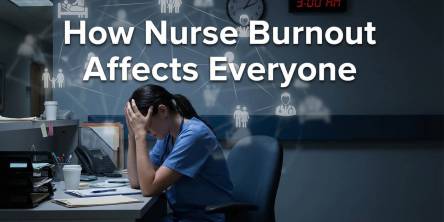When Does Your Doctor Recommend A Hormonal Imbalance Test?

Hormones like estrogen, testosterone and cortisol regulate many essential body functions. When they fall out of optimal balance, you may experience symptoms interfering with wellbeing. Doctors may recommend testing your hormone levels if certain issues possibly stemming from imbalance persist. Understanding the signs of hormonal disruption can help you recognize if testing and treatment may improve health and quality of life. This article explores common indicators that prompt physicians like Healthy Remedies to order hormonal imbalance test.
Persistent Fatigue and Low Energy
Excessive tiredness and chronic low energy that remains undiagnosed can be evaluated for a potential hormonal link. Certain imbalances lead to lackluster energy. For example, low thyroid function (hypothyroidism) commonly causes fatigue. A blood test measuring thyroid hormone (TSH) level may be ordered to check for this. Adrenal issues can also induce exhaustion.
Problems Losing or Gaining Weight
Struggling to lose excess weight or experiencing unexplained weight gain despite diet and exercise may indicate an underlying imbalance. For instance, cortisol imbalance can make weight loss difficult and drive abdominal fat storage. Testing cortisol levels can reveal if this hormone is contributing to obesity.
Sleep Disruptions and Insomnia
Hormones strongly influence sleep-wake cycles and sleep quality. Chronic insomnia or frequently waking up despite having healthy sleep habits may have a hormonal component.
Doctors may check levels of cortisol, melatonin, and thyroid hormones if sleep dysfunction persists without other explainable cause.
Sudden Mood Changes
Extreme irritability, anxiety, sadness, or mood swings arising seemingly out of nowhere may be from hormonal shifts. The delicate balance of estrogen, progesterone, cortisol and other hormones heavily impacts mood. Testing helps determine if emotional issues relate to certain hormone deficiencies or imbalances that require correction. Tracking symptoms along with hormone levels can identify correlations.
Menstrual Irregularities
Abnormal periods, severe PMS, missing periods, heavy bleeding and other disruptions prompt evaluation of female sex hormones like estrogen and progesterone which control the menstrual cycle. Doctors will order blood tests and potentially imaging to assess ovaries and uteruses producing these hormones. Ensuring ideal balances regulates menstrual health.
Erectile Dysfunction
Erectile dysfunction and low libido in men may indicate low testosterone levels. Testosterone is essential for sexual and reproductive health. Bloodwork measuring testosterone is recommended if ED persists. Determining if low testosterone is the culprit empowers physicians to prescribe hormone correcting therapies to improve intimate function and satisfaction.
Infertility Issues
Both women and men may undergo testing for hormonal imbalances hindering fertility. Certain levels must be optimized to conceive. For women, thyroid, estrogen, progesterone and testosterone will be evaluated. For men, testosterone and sperm analysis tests are standard. Correcting imbalances aids conception.
Osteoporosis Risk
Estrogen and testosterone deficiencies can increase osteoporosis risk. Doctors will order bone density scans and hormone level tests in response to concerns about bone density reduction.
Getting levels back up through medication or supplements helps strengthen bones and avoid fractures. Monitoring levels prevents further bone deterioration.
Chronic Stress
Cortisol levels rise and fall based on stress. Prolonged high cortisol from chronic stress disrupts healthy hormonal function. Testing cortisol may be recommended if you suffer from stress-related health issues. Determining if cortisol is too high guides use of stress reduction techniques and medications to restore optimal balance.
Conclusion
While only a physician can determine if testing is truly needed, being aware of these potential indicators of imbalance empowers you to have productive discussions about whether hormone analysis could improve wellbeing. If concerning symptoms persist, don’t hesitate to bring up a hormone test.
FAQs
1. How is a hormonal imbalance diagnosed?
Hormonal imbalances are typically diagnosed through blood tests that measure levels of hormones like estrogen, testosterone, thyroid hormones, and cortisol. Your doctor may also recommend imaging tests in some cases.
2. Can a hormonal imbalance cause mental health issues?
Yes, hormonal imbalances can significantly affect mood and mental health, leading to symptoms such as anxiety, depression, and sudden mood swings.
3. How long does it take to see improvements after treating a hormonal imbalance?
The time it takes to see improvements varies depending on the type of imbalance and the treatment plan. Some people notice changes within weeks, while others may take several months.
4. Can lifestyle changes help manage hormonal imbalances?
Lifestyle changes like a balanced diet, regular exercise, stress management, and adequate sleep can help manage and even prevent hormonal imbalances.
Similar Articles
Winter is a season when the body needs extra nourishment, warmth, and immunity support. According to Ayurveda and modern nutrition science, dry fruits play a vital role in maintaining health during cold weather.
Most people think health problems start suddenly. One day you feel fine, the next day something is wrong. In reality, most health issues develop slowly .They grow quietly in the background while life keeps moving.
The start of a new year is a natural time to pause, reflect, and think about how you want to feel in the months ahead. For those over 60, a fresh start does not mean setting unrealistic resolutions or making drastic changes.
Picture this: You're parked at your workspace, battling to focus on what should be a straightforward five-minute task. That afternoon slump? It's demolishing you today.
Joint pain and arthritis are common health issues that tend to become more intense during the winter season
Discover the benefits, challenges, and future of locum medical jobs. Learn how locum recruitment agencies support flexible, diverse career opportunities for healthcare professionals seeking dynamic work environments.
Burnout in the healthcare environment is a significant and growing crisis.
NAD+ therapy restores cellular energy, enhances metabolism, and promotes anti-aging by supporting DNA repair and improved overall vitality.
Seasonal Affective Disorder (SAD) is a type of depression linked to seasonal changes, most commonly seen during the late fall and winter months when sunlight exposure decreases









